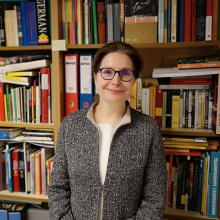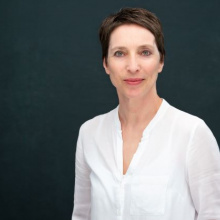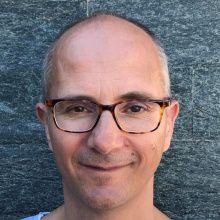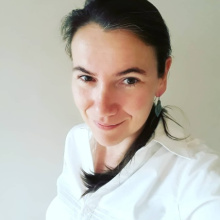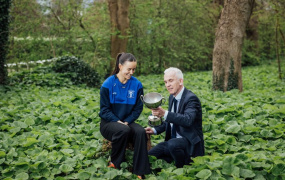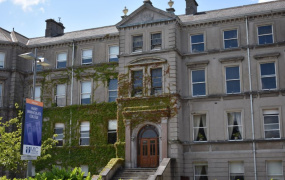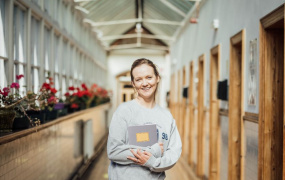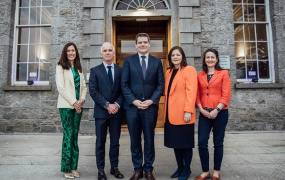German Studies
About
Committed to excellence in education and research, and highly supportive of our students, we enable our students to develop language expertise and intercultural competence, so important in today’s Ireland, the EU and beyond. A degree in German Studies opens a world of opportunities and the widest possible range of career options.
Mary Immaculate College is the only third-level institution in Ireland to offer German Studies as part of a degree for Primary Teaching, and as a full subject within the Liberal Arts degree (for beginners and advanced learners of German). In deciding to study this subject, you are joining a vibrant community of teachers and researchers. We have a strong track record of Irish and international postgraduate students successfully completing MA and PhD degrees by research. Graduates also have the opportunity to register for a taught postgraduate programme, offered in conjunction with the University of Limerick.
A fundamental aspect of German Studies at MIC is that our courses allow for a close working relationship between staff and students. Staff include native speakers of German on Assistantships who run a Film Club and organise other extra-curricular activities. Our students enjoy a high level of individual attention and support throughout their studies at MIC. This has been reflected in results which have given many of our graduates access to prestigious postgraduate programmes, scholarships and excellent career prospects, even in a difficult economic climate.
We take part in Erasmus and other international exchange programmes. Students have access to these at undergraduate and postgraduate level, and will meet international students from different German-speaking countries, France, Poland, the US and many other countries in their lectures. We actively support students in the application process for international scholarships.
The first language of more than 100 million people in Germany, Austria and parts of Switzerland, as well as being spoken in Eastern Europe and Northern Italy, German is one of the main languages of modern Europe. German offers access to the rich and diverse cultural heritage of many countries at the heart of Europe. Due to the strength of Germany’s economy and its influential role in the development of the European Union, German is also an important medium of communication for international business and trade. This is also reflected in the Irish government strategy LanguagesConnect 2017-2026, which prioritises German over any other European and non-European foreign language, highlighting the need in Ireland for graduates with German.
If you are considering a degree in German Studies, you should have an interest in languages, as well as literature, current affairs and history. You should also be ready to experience a different culture by spending some time in a German-speaking country and be willing to see your own culture from a different perspective.
For further details please consult our Departmental Handbook.
Check out our social media pages for all up to date information about us and events in the department:
We are very research-active and members of staff are widely published in national and international journals and by prestigious academic presses internationally. For further details, see the German Studies Staff section.

Further student testimonials can be found under Useful Information!
Subject Overview
Undergraduate
German Studies is offered as part of the Bachelor of Arts (BA) and Bachelor of Education (B Ed) programmes at MIC.
As a BA student of German, you take GE4701 and GE4702 if you are a beginner (or below Leaving Certificate level). If you had German in your Leaving Certificate, you will normally join GE4711 and GE4712 in your first year. In second year, you will be able to further build on your knowledge of the German language and culture in four well-structured modules, with additional 'bridging tutorials' providing support for those students that began their studies within the ab initio programme.
In your third year, you will spend a semester or, ideally, a full year at a German-language University. The year or semester abroad provides students with the unique opportunity to improve their language skills while living within German-language culture. During this year abroad, students significantly broaden their intellectual and personal horizons and gain invaluable intercultural knowledge and skills. Your academic advisor, based at MIC, will offer additional help and support. During your final year at MIC, you will further expand and deepen your knowledge of the German language and culture, and write an Undergraduate Dissertation for which you begin your research already in Year 2. The BA in German Studies provides you with an in-depth and well-rounded education that will enable you to pursue many different careers.
As a B Ed student, you can avail of a number of different elective modules in German Studies (details below).
The following are modules for the BA programme, unless otherwise specified, arranged in descending order from First Year onwards:
Advanced Only.
An introduction to German language, culture, history and literature of the twentieth century through the discussion of film, fictional and non-fictional texts and intensive language practice. The grammar lecture in the language element focuses on the reflection and extension of existing (second level) grammatical knowledge. In the accompanying communication skills tutorial, conducted in small groups, students apply grammatical structures in oral and written communication at A2/B1 level (Common European Framework of Reference for Languages). Classes in Kultur and Literatur consist of one lecture in English (Kultur) and one interactive workshop in German (Literatur). In the culture lecture, film, newspaper articles and secondary sources are used to highlight aspects of German-speaking cultures such as Austria and Switzerland. The main thematic focus, which may differ from year, may be on gender, ethnic, national and regional identity or everyday culture. The literature class involves the reading and discussion of a literary text to provide students with further access to these topics and to develop their reading and analytical techniques. The module consists of four contact hours in total.
Please note: The order of topics in culture and literature outlined in GE4711/12 may alternate in particular years.
Advanced Only.
This module continues all aspects of the work begun in GE4711 within a similar course structure. The language element, consisting of a grammar lecture and a communication skills tutorial, continues the analysis and practice of grammatical structures and vocabulary work on A2/B1 level begun during the autumn semester. In the culture lecture, film and other media are used to highlight aspects of contemporary German culture. Particular emphasis is given to the political and cultural division of Germany after 1945 and the situation after unification in 1990. Students gain an insight into political and social structures, such as the education system or the situation of migrant communities, and learn how these are reflected in aspects of everyday life, youth cultures and other subcultures. The literature workshop allows participants to practice their reading techniques, principles of textual analysis and writing skills. The literary texts discussed here are thematically linked to the culture lecture, and thus may focus on children’s literature, migrant literature or film versions of literary texts in one particular year. The module consists of four contact hours in total.
Please note: The order of topics in culture and literature outlined in GE 4711/12 may alternate in particular years.
Beginners or those with very limited German skills only.
In the culture lecture, which is held in English, film, newspaper articles and secondary sources are used to highlight aspects of German-speaking cultures such as Austria, Switzerland and Liechtenstein. Particular emphasis is given to the themes of gender, ethnic, national and regional identity as well as to everyday culture (one hour; see GE4711). The main focus of this module is on acquiring German language skills at A1 level, which includes the introduction to grammatical structures and their application as well as the development of oral and written communication skills in intensive language tutorials, conducted in small groups (four hours). In this semester ab initio students have five contact hours in total. This module is aimed at students without or with very basic German language skills.
Beginners or those with limited German skills only.
In the culture lecture, held in English, film and other media are used to highlight aspects of contemporary German culture. Particular emphasis is given to the political and cultural division of Germany after 1945 and the situation after its unification in 1990. Students gain an insight into political and social structures, such as the education system or the situation of migrant communities, and learn how these are reflected in aspects of everyday life, youth cultures and other subcultures (see GE4712). The grammar lecture and language tutorials continue the intensive practice of grammatical structures, vocabulary work, written and oral language skills begun during Semester 1. Students should obtain a minimum grade of B2 at the end of this semester if they wish to continue with German in second year. The module consists of five contact hours in total.
Advanced Only.
The module consists of classes in grammar, linguistics, writing and oral communication skills. The grammar lecture explores grammatical structures at level B1. Communication skills are further developed through written and oral discussion of topical issues such as emigration, women, family and travel in specific writing skills and communication skills tutorials. The linguistics lecture introduces students to the history and development of the German language, looks at both contemporary language debates and the variety of the German speaking areas, and provides a practice-oriented overview on phonology and phonetics. The module consists of four contact hours in total.
Advanced Only.
The module provides an insight into the history of modern German literature and society from the late eighteenth to the late nineteenth century. Classes consist of one lecture in English (Kultur) and one interactive workshop in German (Literatur). Students are introduced to the literature of a particular period of this time within its wider cultural context. Such periods may include, for example, the Enlightenment, Storm and Stress, Weimar Classicism, Romanticism, Vormärz, Realism and Naturalism. At the same time, students gain an insight into the German culture(s) of this time in a wider sense, including the structures of society and in how far ‘German’ is a useful term here. Selected topics for exploration include the changing political boundaries, the rise of the middle classes in the eighteenth and nineteenth centuries, the situation of women and ethnic minorities, the difficult beginnings of a German democracy, the development of nationalism and the founding of the German nation state. The module consists of three contact hours in total.
(Module for those in the 'ab initio' strand)
This module has been specifically designed for students who entered the German Studies programme at ab initio level in the previous year. The module consists of a linguistics and a grammar lecture as well as grammar, writing skills and communication skills tutorials (as in GE4713). The module focuses predominantly on grammatical structures and communicative skills (oral and aural) at A2/B1 level (three hours per week). A separate class aims at developing topic-based writing skills (one hour per week). The grammar lecture explores grammatical structures at B1 level and practices them in a specific ab initio tutorial. Communication skills are further developed through written and oral discussion of topical issues, such as family, education, gender, identity, etc. The linguistics component introduces students to basic concepts such as syntax and morphology, as well as providing an introduction to the history of the German language and is mostly taught through the medium of English (one hour per week).
(Module for those in the 'ab initio' strand)
This module, which introduces students to the literature and culture of the late eighteenth and nineteenth century in German speaking countries, caters specifically to students who started with German ab initio in Year 1. Students are introduced to the literature of periods such as the Enlightenment, Storm and Stress, Weimar Classicism, Romanticism, Vormärz, Realism and Naturalism. Selected topics for exploration in the culture lecture (one hour) include the rise of the middle classes in the eighteenth and nineteenth centuries, the position of women in society, the difficult beginnings of a German democracy, the development of nationalism, regional differences and the founding of the German nation state. The literature tutorials (two hours) focus on fairy tales of the eighteenth and nineteenth century. An additional tutorial (two hours) is provided to support students as they expand their German vocabulary and improve their reading skills.
Ab Initio students are provided with extra bridging tutorials.
Beginners and advanced.
An extended survey of grammar at level B1/B2. Improvement of students’ oral, aural and writing skills in German through the discussion of a wide range of familiar and relevant topics. The linguistics lecture continues work begun in the autumn semester, focusing this term on different structural elements of the German language. In addition to concepts of morphology, syntax, and semantics, the lecture will introduce students to the realm of pragmatics. The module consists of four contact hours in total.
Beginners and advanced.
The module continues the work begun in GE4723. Attention this term focuses on an overview of the history of German literature and society from the late nineteenth century to the present. Students are introduced to the literature of periods such as early modernism, high modernism, National Socialism and post-1945. The society element involves an examination of selected topics, such as mass culture and modernism, gender and modernism, politics and culture between 1933 and 1945, 'Trümmerfrauen', post-1945 protest movements in FRG and GDR, 'Die Wende' etc. The module consists of three contact hours in total.
Beginners and advanced.
In third year, BA students normally spend an academic year/semester abroad, either as a student at a German, Austrian or Swiss university or as an English language assistant at a German or Austrian secondary school.
The year abroad gives students the opportunity to improve their language skills as well as to get to know a foreign culture at first hand and broaden their personal horizons.
Beginners and advanced.
The final year language components continue work on complex grammatical structures with the aim of developing a high degree of fluency and correctness in spoken and written German. Particular emphasis is placed on stylistic improvement and language awareness in translation and writing skills classes as well as in the oral communication skills tutorial. In the linguistics lecture students will be introduced to applied linguistics to allow them to explore specific aspects in further depth in GE4718. The module consists of four contact hours in total.
Beginners and advanced.
This module explores particular movements within literature and the arts during specific periods, such as Vormärz, Fin de Siècle, New Objectivity or post-war literature and culture. Emphasis here is on addressing such movements within its national and international contexts. The society element deals with social change during the period discussed. The module consists of three contact hours in total.
In autumn 2023, this module focuses on 'Exile'. For further information, please contact christiane.schonfeld@mic.ul.ie
Beginners and advanced.
The module continues the language work of GE4717 and revises important grammatical structures. The linguistics lecture will focus on one of the aspects of applied linguistics discussed in GE4717, such as pragmatics, contrastive linguistics, sociolinguistics/ anthropological linguistics, second language acquisition, translation or intercultural communication for further in-depth analysis. The module consists of four contact hours in total.
Beginners and advanced.
This module examines aspects of regional, national, and ethnic identity in the German-speaking world, and how these are reflected in literary texts, film and other media. Classes normally consist of one lecture in English (culture) and a workshop in German (literature), which are thematically linked. The focus may vary from year to year, and possible themes include either of the following: problems of self-definition in Switzerland; Austria; in East and West Germany; in the former “German East”, encompassing German-speaking minorities in today's Russia, Rumania, Hungary or Poland; representations of the “Jew” in German culture; multiculturalism in contemporary German society; German-Irish relations, in conjunction with the Centre for Irish-German Studies (UL); images of self and Other in literary texts, film and other media. The module consists of three contact hours in total.
The Department of German Studies offers a Specialism in German Studies to those B Ed students who pass the following five elective modules in German (descriptions above):
| GE4773: Intermediate German Language 1 |
| GE4725: Erasmus Placement or GE4725: Intermediate German Language 2 |
| GE4736: Teaching Foreign Languages in Irish Primary Schools |
| GE4788: Fairy Tales, Fantasy, Film: International Children’s Literature in the Classroom |
| GE4798: Teaching Europe in the Multilingual Classroom |
We highly recommend that B Ed students avail of the academic semester abroad, as the study at a German, Austrian or Swiss university while living within German-language culture is a unique opportunity that will help you excel in the German language, grow intellectually and gain invaluable intercultural knowledge and skills. Your academic advisor, based at MIC, will offer additional help and support.
Postgraduate
You may apply for an MA or PhD by research with the Department of German Studies at Mary Immaculate College in a variety of areas. There are a limited number of teaching assistantships and fee waivers available to suitable PhD (and MA) students. Contact the Head of Department for further information.
We provide a supportive and encouraging environment for postgraduate students as part of a structured supervision programme run by the department. Due to its size and ethos, which may distinguish it from larger institutions, the college is able to offer a motivating framework and interdisciplinary co-operation as well as access to international research groups, research centres such as the Irish Centre for Transnational Studies (ICTS) and other projects and resources.
Research opportunities are available in the following areas:
- Adaption and intermediality: literature/film/theatre/new media
- Inter-/transcultural literature and different media: transnational spaces, borderland spaces, bodily movement, migration, dislocation, exile, ‘Heimat’, ‘East’ and ‘West’, Europe
- Memory, time, historical narratives
- Autobiographical writing, autofiction
- Literary theory: aesthetics, fictionality, theatricality, adaptation, autobiographical writing, memory, trauma, subject and subjectivity, performance, spatial turn, alterity, etc.
- Comparative literature: German-language and Irish, Polish, Russian, Ukrainian or Czech literatures
- Specific authors, including: Heinrich v. Kleist, E.T.A. Hoffmann, Hermann Broch, Georg Trakl, Lion Feuchtwanger, Ernst Toller, Peter Huchel, Johannes Bobrowski, Günter Grass, Libuše Moníková, Werner Schwab, Lutz Seiler, Herta Müller, Katja Petrowskaja, etc.
- Specific periods: Enlightenment, Romanticism, Expressionism/Modernism, exile writing/film; post-war writing; post-Soviet writing; postmodernism and contemporary writing
MA in German Language and Culture in Europe
Graduates also have the opportunity to register for a Taught MA in German Language and Culture in Europe (offered in conjunction with the School of Languages, Literature, Culture and Communications at the University of Limerick). In Semester 1, students will be fully-based at UL and at MIC in Semester 2.
The compulsory core modules are normally taught by lecture, tutorial discussion, film screenings, assigned and recommended reading and viewing, and by research-based critical writing. Students will learn by listening to and engaging with lectures, reading primary and secondary sources (both assigned and recommended), watching films critically, engaging in discussion in tutorials, giving presentations and writing analytical/critical papers.
The core German Studies modules are delivered and assessed in the target language in order to foster active language competence. The final thesis (15,000 words) can be written in either German or English, following consultation with the relevant supervisor and joint programme directors.
The following is a list of modules offered on that programme:
| Core Modules |
| GE6001: German-language Culture in Europe 1: Transcultural Theory and Textual Practice (UL) |
| GE6011: Advanced Language Skills 1 (UL) |
| GE6002: German-language Culture in Europe 2: German Literature in a Comparative European Context (MIC) |
| GE6012: Advanced Language Skills 2: Analysing Films and Other Visual Texts (MIC) |
| AW6002: Thesis Writing (UL) |
| GE6003: Thesis |
| Elective Modules |
| RM6021: Research Methodologies in Comparative Literature and Cultural Studies (UL) |
| RM6011: Research Methodologies in Applied Language Studies (UL) |
| GE6021: German-Irish Cultural Connections (UL) |
| GE6031: The German Language Today (UL) |
| GE6022: German Language-in-Education Policy and Practice (UL) |
| CU6012: Utopian Theory and Texts (UL) |
| PA6012: European Public Administration: Actors, Institutions, and Policy Process (UL) |
| European Modernism (MIC) |
| Questions of European Identity from the 19th to the 21st Century (MIC) |
| CU6021: Culture and the Market (UL) |
Staff
Useful Information
The current Department of German Studies HANDBOOK is available here.
Students doing a degree in German Studies as part of the BA programme, or studying German as part of the B Ed (Primary Teaching) programme, at Mary Immaculate College have the opportunity to spend either a full academic year or a shorter period of time in Germany, Austria or Switzerland.
Studying or working abroad will allow students to use the German language in an authentic context and experience everyday life abroad. This experience will not only help them to improve their language competences, but also to deepen their intercultural knowledge and skills. Since intercultural experiences are highly valued by many employers, a stay abroad will furthermore increase students' job prospects.If you decide to spend some time in a German speaking country you will be supported by the departmental staff as well as the Placement Office during the preparation of your stay abroad.
BA Off-Campus Programme: Third Year BA students of German Studies are required to spend at least one semester in a German speaking country. However, the Department advises students to spend the full academic year abroad. As experience has shown, this will allow them to settle in properly and enable them to gain profound understanding of the foreign culture and language.
"During my year in Germany I improved my German a lot. I made nice German friends who were patient about my German, and at times when I couldn't understand them, they didn't choose the easier way by switching to English but instead they repeated what they had said in German. That really encouraged me to learn more!"
Aylin, BA student at MIC (spent Erasmus year in Bamberg)
B Ed Options: Students taking part in the Primary Teaching Programme with German as their academic subject can choose to take a year out after their second year and work or study in a German speaking country. Although this is not an obligatory part of the Bachelor of Education programme, experience has shown that B Ed students considerably profit from a stay abroad in various ways. B.Ed. students also have the possibility to conduct their 'Additional Educational Experience' abroad.
The introduction of modern languages into the National Curriculum for Irish primary schools implies the need for qualified and experienced language teachers. Without doubt, a longer stay abroad contributes to a comprehensive understanding of a foreign language and will thus enable B Ed graduates to teach the language in an authentic and encouraging way. Furthermore, profound linguistic and cultural competence in a modern European language such as German gives graduates the chance to find employment in Central Europe as well, for example, in the field of Teaching English as a Foreign Language (TEFL).
"I decided to take a year out after my second year and work as a language assistant in Germany, to improve my German and teaching skills. I lived with such a welcoming family, who included me in different aspects of their family life."
Aisling, B Ed student at MIC (did a language assistantship in Beeskow, Brandenburg)
The BA student with the highest average QCA in German Studies modules taken in final year will be awarded the Silver Medal in German Studies.
In the case that the highest final year QCA in German Studies is achieved by more than one student, the exceptional quality of an undergraduate degree in German Studies as well as other projects and achievements in the broader field of German Studies undertaken while registered as a BA student at MIC will be taken into account.
The Department of German Studies, Mary Immaculate College, is now the official test centre in the west of Ireland for the Goethe Institute Dublin.
If you have beginners or intermediate German and would like to get a globally recognised Goethe Institute certificate to prove it, you can take written and oral exams at Mary Immaculate College. Written and oral exams will be held in MIC in the following Common European Framework Reference Language (CEFR) assessment levels: Basis Users (A1 and A2) and Independent User (B1/Zertifikat).
Registration Form for Goethe-Institut Examinations available here.
Access the Homepage of the Goethe-Institut Dublin for further information, including the CD/DVD Goethe-Institut Examination Flash.
For further information, please email Dr Christiane Schönfeld, Head of the German Studies Department at Christiane.Schonfeld@mic.ul.ie.
Why take the test?
The Goethe-Institut's German examinations are based on the Common European Framework of Reference for Languages levels of proficiency. They start with the A1 examination for beginners and culminate in the C2+ for German language skills virtually equivalent to those of a native speaker. What's more, all Goethe-Institute examinations are available to anyone who might be interested but has not completed one of the Goethe-Institut language courses, provided they have achieved the corresponding level of language proficiency.
The Goethe-Institute's certificates are highly respected everywhere. For example, the Zertifikat Deutsch is recognized as meeting the language requirement when applying for German citizenship, and at German universities and their preparatory courses for foreigners seeking admission, the Zentrale Oberstufenprüfung, the Kleines Deutsches Sprachdiplom und Großes Deutsches Sprachdiplom are required for application. Goethe-Institut Certificates B2 and C1 are accepted as a substitute for the normal admission qualifications for German. Lower level Certificates can substitute for parts of these. Proof of a Goethe Certificate also provides useful credit points in the corresponding subject at many universities in the EU.
In Ireland, initial teacher education for primary and post-primary teachers are facilitated through a range of undergraduate and postgraduate programmes. All teacher education programmes leading to registration must have professional accreditation from the Teaching Council.
As well as a recognised teaching qualification, anyone wishing to pursue post-primary teaching with German as a subject must also meet criteria set out by the Teaching Council here.
The Department of German Studies at MIC strongly recommends a full year abroad in light of the skill levels required for post-primary school teaching.
There is an abundance of information on issues related to German Studies available to you on the Internet. We hope that this page will give you an idea of some relevant websites.
General Information:
Austria
- Travel guide to Austria, About Austria
- Website of the Austrian National Tourist Office
- Guide to travel to Austria
- Maps of Austria
Germany
- Information on German culture, lifestyle, politics etc: deutschland.de
- German society, economy, culture etc reference:
- Statistisches Bundesamt (Federal Statistical Office)
Switzerland
- Official website of Switzerland Tourism, myswitzerland.com
- Switzerland's official web portal
German Language
- Online dictionary (German-English, English-German)
- Online dictionary (German-English, English-German)
- Dictionary of German spelling & tips, background knowledge and games around the German language (German)
- Forum Deutsch als Fremdsprache (German as a foreign language) (German)
- German Grammar
Education
- Detailed information on the Education System in the Federal Republic of Germany
- Institutions of third level education in Germany (German)
Politics
- Official website of the Austrian Government
- Official website of the German Government
- Official website of the Swiss Government
- Constitutions of Austria, Germany and Switzerland
Economics
- Deutsches Institut für Wirtschaftsforschung - Information on current economical issues
- Wirtschaftswoche - German magazine on economics and politics (German)
History
- Cybrary of the Holocaust: Information on the Holocaust, including list of archives and interviews with victims
Irish-German Relations
- GermanConnects is a programme of events and activities designed to foster the learning of the German language throughout Ireland
- Official website of the Embassy of Ireland in Germany
- Official website of Tourism Ireland (German)
- Irish Business Network (ibn): networking opportunities for Irish people working in Germany
- IDA Ireland (Ireland’s inward investment promotion agency)
- Enterprise Ireland (the government organisation responsible for the development and growth of Irish enterprises in world markets)
- German website of the Irish Food Board (German)
Catalogues of Libraries and Publishers
- Verzeichnis lieferbarer Bücher: German equivalent of Books in Print (German)
- Links to websites of leading German publishers and booksellers, emphasis on scientific/academic publications (German): fu-berlin.de
Visual and Audio Media
- IMDb Multi-search: American archive of film titles, directors, actors etc.
- Website of German research group, including excerpts from a biographical encyclopedia on German cinema (German)
- HörspielarchivArchive of audio plays, authors, speakers etc (German): ard.de-Radio/
"The German Department is dedicated to supporting its students consistently throughout the degree and freely offer advice, which I found extremely beneficial."
Rebecca O'Grady (BA, 2018)
“German studies was the best elective choice for me as part of the B.Ed degree. It afforded me a wonderful opportunity to intertwine the German language and my passion for teaching with the help, expertise and support of the German department and lecturers."
Laura Nevin (B Ed, 2018)
"German Studies was the best choice I have made. Great department with a warm friendly atmosphere. Lecturers were excellent and fantastic in their support."
Alena Kabylianets (BA, 2018)
"I was keen to learn a second European language, and choosing German studies at MIC was a great choice. The German department was incredibly supportive of beginners like myself, helping me catch up with classmates who had studied German at secondary school. Anyone with an ambition to achieve will find that everyone in the MIC German department is willing to match that ambition with guidance and support."
Barry Finegan (BA, 2017)

Research
Meet the Researcher - Christiane Schönfeld

Christiane Schönfeld is Head of the Department of German Studies at Mary Immaculate College, Chair of W+IGS, and a member of the Royal Irish Academy.
I studied Art History, Archaeology, and Germanic Languages & Literatures at the University of Freiburg as an Undergraduate and then moved to Bonn (the then capital of West Germany), where I was invited to do a PhD in Art History with Prof. Tilmann Buddensieg. I wanted to focus on the American architect Philip Johnson in my thesis and applied to the Pennsylvania State University to research contemporary American architecture, taking up employment as a teaching assistant at Penn State’s German Department to finance my education there. Even though I knew nothing about how to teach my native language at the time, I tremendously enjoyed working with those wonderfully enthusiastic (and very patient) undergraduate students, who were decidedly more informed in matters of German grammar than me! After only a few weeks, I knew what I wanted to do with my life. I decided to stay in the US and focus my studies on a future career in teaching German as a foreign language as well as on intercultural communication, and transnational, interdisciplinary studies. I completed my MA at Penn State with a thesis on contemporary Austrian literature and, four years later, graduated with an interdisciplinary PhD (after completion of the taught programme and passing four ‘comprehensive exams’ and a viva voce, a year in Paris, and many weeks in the National Archive for German Literature in Marbach, writing a thesis on the representation of prostitutes in German Expressionism).
Much of my research and published work is devoted to the role of writers, filmmakers and artists who put marginal figures (such as asylum seekers, exiles, sex workers, single mothers, etc.) centre stage, contributing to the communication of fundamental values (such as equity, diversity, and inclusion)—and thus to the public sphere and, ideally, the betterment of society. Furthermore, I work on adaptations, and in my publications reconceptualise the interstices between different modes of cultural production, especially in my latest monograph The History of German Literature on Film (Bloomsbury, 2023; 720 pp.). Finally, I work to resurrect unjustly marginalised contributors to cultural canons, such as Emmy Hennings or Ernst Toller, co-editing, for example, the works Ernst Toller (6 vols, 2015) and a new translation of Ernst Toller’s A Youth in Germany (trans. Eoin and Eva Bourke, ed. with Lisa Marie Anderson; Broadview, 2024).
I love working in archives, uncovering new knowledge, and contributing to a better understanding of German-language culture. My favourite part is always ‘learning’, especially when it is prompted by unexpected discoveries that shed new light on our cultural history; I truly enjoy the critical examination of archival materials, the accumulation of new insights and understanding, and the conceptualisation of a research project. That doesn’t mean that every day holds a new discovery; it takes time, often spent in windowless, air-conditioned rooms surrounded by countless dusty boxes of documents, pictures, or films, with little awareness of the sunny days of summer outside. (And sometimes, the work is even infuriating – my husband still remembers the summer in Berlin I spent researching the (ab)use of canonical literature by the Nazi film industry... I came home exasperated every evening; but in the end this work contributed to our critical understanding of the strategies and subtle mechanisms of racist propaganda on film).
Disseminating this new knowledge at conferences is also an important part of any research project, and it is always a joy to develop ideas further in conversations and by having them placed within new contexts by others. I firmly believe in the value of interdisciplinary humanist research and the need for its widest possible dissemination, and it’s a huge privilege to be able to do this work.
Again, it’s a privilege to be able to supervise students, to support them in developing expertise in the German language and intercultural competence - skills much needed in Ireland today. Being part of a student’s learning journey gives meaning to the many hours we spent in developing our own expertise as academics, and I love sharing my knowledge about German-language literature and transnational culture, the teaching of German, Europe, and active citizenship, and how interdisciplinary work is practiced and conceptualised. Watching students grow professionally and personally - helping them to develop expertise, tackle ever more complex questions, complete challenging projects, and to build a career - is hugely rewarding.
Bring your enthusiasm and curiosity to the table. Choose a subject area that you are really interested in (as you’re going to spend a lot – and I mean: a LOT) of time working in your chosen field. Never hesitate to explore new ideas – be creative! – who knows where this learning journey will take you. Talk to potential supervisors before committing to a programme to ensure that you get guidance and support within a productive environment suitable to your needs and the innovative contribution you want to make to your chosen field. A postgraduate degree opens many doors, and the skills you’ll acquire will help you build a career, no matter which path you’ll choose to take.
To visit Christiane's MIC profile, click here.
MIC’s Meet the Researcher series focuses on the breadth of research output from MIC academics and student researchers.
Publications - Department of German Studies
Current staff research projects
For individual research profiles of our staff, click here.
Recent publications by staff (selection)
Forthcoming
Sabine Egger: Eisenbahn. In: H. Bay, L. Beck, C. Hamann und J. Osthues (Eds.). Handbuch Literatur und Reise. Stuttgart: Metzler.
Sabine Egger: Moving East/West: Transit Spaces in German Poetry, Short Prose and Intermedial Projects after 1989. Berlin: De Gruyter.
Britta C. Jung: The Hill We Climb / Den Hügel hinauf. Intercultural Misunderstandings and Semantic-Stylistic Shifts in the Translation of Amanda Gorman’s Inaugural Poem. In: S. Schwerter/D. Dias (Eds.): Intercultural Misunderstandings in Literary and Song Translation. Stuttgart: Ibidem.
Published books and articles
2024
Ernst Toller: A Youth in Germany, translated from the original German by Eoin and Eva Bourke, edited and introduced by Christiane Schönfeld and Lisa Marie Anderson. Peterborough: Broadview, 2024.
Britta C. Jung: An Claíomh Défhaobhrach / A Double-Edged Sword. Irlands konstitutionelle Zweisprachigkeit und das Erlernen moderner Fremdsprachen. In: S. Schwerter/N. Rentel/B. Meisnitzer (Eds.): Mehrsprachigkeit. Spracheinstellungen, mediale Erscheinungsformen und didaktische Implikationen, Stuttgart: Ibidem, 2024, pp. 281-306.
Britta C. Jung: Die Judenverfolgung und der Holocaust in der deutschsprachigen Kinder- und Jugendliteratur. In: AG Jugendliteratur und Medien (Ed.): kjl&m 76.2 (2024): pp. 13-23. Invited article for the thematic issue „Nie wieder!“ ist jetzt. Verfolgung im Nationalsozialismus in der Kinder- und Jugendliteratur, guest edited by P. Josting/L. Jagdschian.
2023
Christiane Schönfeld: The History of German Literature on Film. New York: Bloomsbury (720 pp).
Christiane Schönfeld: “Film: Drehbücher, Adaptionen, Remakes”, Erich Kästner, ed. Stefan Neuhaus, Stuttgart: Metzler, 2023, pp. 263-85.
Christiane Schönfeld: ““Kulturelles Erbe und Arbeit im Exil: Die deutschsprachige Literatur und der internationale Film (1933-45)”, Oxford German Studies 52.3 (2023): 350-65.
2022
Helmut Grugger: Der radikale Poet Werner Schwab: Theaterstar, Enfant terrible, Anti-Populist. Wien: Sonderzahl.
Christiane Schönfeld and Lisa Marie Anderson (eds./intro.) German Life and Letters 75.2 (2022) – a special number on Ernst Toller in Exile.
Christiane Schönfeld: “Ernst Tollers Film Projects”, German Life and Letters 75.2 (2022): 250-65.
Christiane Schönfeld: “Women within the City (Berlin 1900-1933)” in: Jeremy Tambling, ed., Encyclopedia of Urban Literary Studies, London: Palgrave, 2022, pp. 210-226.
Christiane Schönfeld: “Berlin Alexanderplatz”, in: Jeremy Tambling, ed., Encyclopedia of Urban Literary Studies, Cham/CH: Palgrave, 2022, pp. 1897-1908.
2021
Christiane Schönfeld and Aneka Meier: “Lotte Reiniger and Female Creativity in the Weimar Republic”, in Rada Bieberstein, ed., Beyond Prince Achmed: New Perspectives on Animation Pioneer Lotte Reiniger, Marburg: Schüren, 2021, pp. 31-69.
Handbuch Familienroman. Der Generationenroman in Moderne und Gegenwart. Ed. by H. Grugger and J. Holzner. Berlin: De Gruyter. (2021)
Sarmatien - Germania Slavica - Mitteleuropa. Vom Grenzland im Osten über Bobrowskis Utopie zur Ästhetik des Grenzraums. (Deutschsprachige Gegenwartsliteratur und Medien), ed. by S. Egger, S. Hajduk and B. Jung. Göttingen: Vandenhoeck & Ruprecht.
Connections in Motion: Dance and Modernism in Irish and German Literature and Culture, ed. by S. Egger, C. Foley and M. Harper. Lanham, MD: Lexington Books.
2020
Sabine Egger: The Poetics of Movement and Deterritorialisation in Katja Petrowskaja’s Vielleicht Esther (2014). In: Contemporary Jewish Women’s Writing in Germany and Austria –A Minor Literature? Ed. by M. R. Lizarazu & G. Weiss-Sussex. Special Issue Modern Languages Open/MLO (2020).
Helmut Grugger: Hermann Broch und die Frage der Selbst-Vermittlung am Beispiel seiner Romane. In: Übertragen – Vermitteln – Übersetzen. Hrsg. von Irmtraud Kaiser, Manfred Kern und Werner Michler. Wien: Praesens.
Helmut Grugger: Über das Nomadische als Gegenbegriff zur Subjektivierung in der traditionellen Kinder- und Jugendliteratur. In: A. Braun (Hrsg.), Bildung in und mit Texten der Kinder- und Jugendliteratur. Baltmannsweiler: Schneider, 119–133.
Helmut Grugger: Diskursanalyse. In: S. Neuhaus (Hrsg.), Effi Briest-Handbuch. Stuttgart: Metzler, 268–276.
Christiane Schönfeld: Pariser Exilromane im Film: Transnationale Neucodierungen von Erinnerungskultur, Feuchtwanger und die Erinnerungskultur in Frankreich / Feuchtwanger et la culture mémorielle en France, ed. by Daniel Azuélos, Andrea Chartier-Bunzel, Frédéric Teinturier, London: Lang, Feuchtwanger-Studien 8 (2020): 229-246.
Christiane Schönfeld: Collaborative Art with Political Intent: The 1933 Adaptation of Theodor Storm’s Der Schimmelreiter / The Rider on the White Horse (1888), in: Bernadette Cronin, Rachel MagShamhráin, Nikolai Preuschoff, eds. Process and Practice: Adaptation Considered As a Collaborative Art, London: Palgrave, 2020, 169-192.
2019
Sabine Egger: Alterität. In: S. Neuhaus (Ed.). Effi Briest Handbuch. Stuttgart: Metzler.
Sabine Egger and Sandra Wagner. Zu (trans-)nationalen Goethe-Adaptionen in der zeitgenössischen Onlinekultur: Mashing up Werther. In: S. Matuschek, S. Picard, P. Wojcik & M. Wolting (Eds). Klassik als kulturelle Praxis - funktional, intermedial, transkulturell. Berlin: de Gruyter.
Sabine Egger: Literarische Grenzbewegungen: Zu den ‘Autogeographien’ Katja Petrowskajas und Juri Andruchowytschs. In: I.-K. Patrut, R. Rössler & W. Johann (Eds.). Transformationen Europas im 20. und 21. Jahrhundert. Zur Ästhetik und Wissensgeschichte der interkulturellen Moderne. Bielefeld: transcript, 2019, 345-369.
Sabine Egger: Alterität. In: N. Mattern & S. Neuhaus (Eds). Buddenbrooks Handbuch. Stuttgart: Metzler, 274-281.
Sabine Egger: Magischer Realismus als Form einer transgressiven Historiographie? Überlegungen zu Romanen Sabrina Janeschs und Catalin Dorian Florescus“. In: M. Wolting (Ed.). Neues historisches Erzählen. Göttingen: Vandenhoeck & Ruprecht, 155-174.
Helmut Grugger: Zerfallsprozesse einer Sport- und Biologielehrerin als 'Repräsentation' des Politischen? Lesarten von Judith Schalanskys Roman Der Hals der Giraffe (2011). In: S. Neuhaus und I. Nover, (Hrsg.), Das Politische in der Gegenwartsliteratur. Berlin: De Gruyter, 437–459.
Christiane Schönfeld: Verfilmungen, Metzler Handbuch: Fontanes Effi Briest, ed. Stefan Neuhaus, Stuttgart: Metzler, 2019, 131-149.
Christiane Schönfeld: Ernst Toller und das Kino, text+kritik 223 (2019): 47-57.
Sandra Wagner: Monströse Romanzen und romantische Monster. Zum Zeitgeist der Millennial-Generation in deutschsprachigen Mash-up-Romanen. Würzburg: Köngishausen&Neumann, 2019.
2018
Sabine Egger: The radio transcending boundaries and historical narratives in Lutz Seiler’s poetry and in his novel Kruso. In D. Byrnes, J. Conacher & G. Holfter (Eds): East-German Literature, 25 Years After the Fall of the Wall, Leiden, Boston & Tokyo: Brill, 160-178.
Helmut Grugger: Trauma – Literatur – Moderne. Poetische Diskurse zum Komplex des Psychotraumas seit der Spätaufklärung. Wiesbaden: Metzler. (online available as e-book).
Helmut Grugger: Familie. In: N. Mattern und S. Neuhaus, (Hrsg.), Buddenbrooks-Handbuch. Stuttgart: Metzler, 117–125.
Helmut Grugger: Subjektreisen der literarischen Moderne: Von Zauberbergen, Schlafwandlern und Schlössern. In: U. Schaffers et al., (Hrsg.), (Off) the beaten track? Normierungen und Kanonisierungen des Reisens. Würzburg: Königshausen & Neumann, 239–256.
Christiane Schönfeld: Buddenbrooks im Stummfilm, Metzler Handbuch: Thomas Manns Buddenbrooks, eds. Stefan Neuhaus and Nicole Mattern, Stuttgart: Metzler, 2018, pp. 58-63.
Christiane Schönfeld: Von einer Ästhetik des Hässlichen zu einer Ethik des Ähnlichen: Prostituierte in Kunst, Literatur und Film, in: Komparative Ästhetiken, eds. Meher Bhoot, Vibha Surana, Ernest Hess- Lüttich, Mumbai: University of Mumbai Press, 2018, pp. 275-289.
Sandra Wagner: Der Wald als liminaler Raum in Wolf G. Heimraths Werther, der Werwolf (2010). In: Germanistik in Ireland 13 (2018), p. 143-154.
2017
Transiträume und transitorische Begegnungen in Literatur, Theater und Film (Cross-Cultural Communication 30), ed. by S. Egger, W. Bonner & E. Hess-Lüttich. Frankfurt/M.: Peter Lang, 2017.
Sabine Egger: Magischer Realismus als Modus einer transgenerationellen „felt history“: Heimat, Flucht und Vertreibung bei Sabrina Janesch. In: G. Iztueta, M. Saalbach, I. Talavera, C. Bescansa & J. Standke (Eds) Raum-Gefühl-Heimat: Literarische Repräsentationen nach 1945. Marburg: Verlag LiteraturWissenschaft.de, 141-156.
Sabine Egger: Martin Buber und Johannes Bobrowski. Ethik und Erinnerung in der sarmatischen Lyrik. In: Literaturkritik.de 19.4 (2017). OA
Sabine Egger: "Eastern European Turns". Zur Dynamisierung von Räumen und Identitäten. In: M. Wolting (Ed.). Identitätskonstruktionen in der deutschen Gegenwartsliteratur (Deutschsprachige Gegenwartsliteratur und Medien 23). Göttingen: Vandenhoeck & Ruprecht, 285-296.
2016
Sabine Egger: Der Raum des Fremden als „fahrender Zug“ in Herta Müllers Reisende auf einem Bein. Zeitschrift für interkulturelle Germanistik 7.2 (2016). Special Issue Vom Zugabteil zum Cabaret: Transiträume Sprache, Literatur und Kultur, 35-54.
Sabine Egger: Auf der Suche nach Spenglers Spuren in der deutschen Nachkriegsliteratur. Von Ernst Wiecherts Totenwald zu Johannes Bobrowskis Sarmatien. In: A. de Winde, S. Fabré, B. Philipsen, S. Maes & Le Prince-Évêque (Eds). Tektonik der Systeme. Neulektüren von Oswald Spengler. Heidelberg: Synchron.
Sabine Egger: “The Wild East” in Contemporary German Poetry: Gerald Zschorsch, Kurt Drawert, Brigitte Oleschinski. In: CALL: Irish Journal for Culture, Arts, Literature and Language 1.1 (2016). OA
Sabine Egger: Dynamisierte Räume, Krieg und Technik: Reisen gen Osten in der deutschsprachigen Literatur. In: M. Braun, O. Jahraus, S. Neuhaus & S. Pesnel (Eds), Nach 1914: Krieg, Literatur und Film in der europäischen Kultur. Würzburg: Königshausen & Neumann, 411-436.
Christiane Schönfeld: Prostitution im Kino der Weimarer Republik, in: Körper kaufen? Prostitution in Literatur und Medien, ed. Simone Sauer-Kretschmer. Berlin: Bachmann, 2016, pp. 68-87.
Sandra Wagner: Mascha Kalékos Gedicht „Kaddisch“. Wandel im Zeitgeist und Selbstverständnis der Dichterin. In: F. Lartillot, F. Teinturier (Eds). Autobiographie et textualité de l’événement au XXe siècle dans les pays de langue allemande. Peter Lang: Bern, 2016, p. 329-349.
GSAI Conference 2019: „Zeitgenossenschaft“
The Department of German Studies at MIC hosted the 2019 GSAI (German Studies Association of Ireland) conference on "Zeitgenossenschaft". More information can be found in our call for papers.
Date: 15 - 16 November 2019
Venue: Mary Immaculate College, Limerick
Organisers and contact:
Hanna Rompf (Hanna.Rompf@mic.ul.ie)
Sandra Wagner (Sandra.Wagner@mic.ul.ie)
Remembering Ernst Toller (1893-1939): Exiles and Refugees between Europe and the US
The spring of 1919 saw the brutal end of the Bavarian soviet republic that had emerged as part of Germany’s November Revolution. Twenty years later, on May 22, 1939, Ernst Toller, one of the leaders of that revolution and republic, committed suicide at the Mayflower Hotel in New York, where he was living in exile from Nazi Germany. To commemorate these anniversaries, we are organizing this conference on German-speaking exiles in New York and the United States, and their legacy for today’s exiles and refugees.
Date: 30 May 2019 - 1 June 2019
Venue: Roosevelt House at Hunter College, New York City
Organisers and contact:
Lisa Marie Anderson (Hunter College, City University of New York)
Christiane Schönfeld (Mary Immaculate College, University of Limerick, Ireland)
Christiane.Schonfeld@mic.ul.ie
Sponsored by
- DAAD - Deutscher Akademischer Austauschdienst
- Max Kade Foundation
- Ernst-Toller-Gesellschaft
- Hunter College (CUNY)
- Mary Immaculate College
Ausschreibung: Master oder PhD / Assistent*innenstelle (German Studies/DaF)
Erwünscht sind Bewerbungen zu einem der folgenden Bereiche (davon abweichende Vorschläge werden in Betracht gezogen):
- Adaption und Intermedialität: Literatur und Film/Theater/neue Medien
- Inter-/transkulturelle Literatur u.a. Medien: Transnationale Räume, Grenzräume, Bewegung und Grenzüberschreitung, Europabilder, “Osten” und “Westen”, Reiseliteratur, Heimat, Exil, etc.
- Literatur und Theorie: Ästhetik, Fiktionalität, Adaption, Autobiographie, Erinnerung, Trauma, Subjekt und Subjektivität, Theatralität, Performativität, Raumtheorie, Differenz, Alterität und Fremdheit, etc.
- Komparatistische Themen: Bezug zur irischen, polnischen, russischen oder tschechischen Literatur
- Arbeiten zu ausgewählten Autoren: u.a. Heinrich v. Kleist, E.T.A. Hoffmann, Hermann Broch, Georg Trakl, Lion Feuchtwanger, Ernst Toller, Peter Huchel, Johannes Bobrowski, Günter Grass, Libuše Moníková, Werner Schwab, Lutz Seiler, Herta Müller, Katja Petrowskaja
- Epochenspezfische Arbeiten: Aufklärung, Romantik, Expressionismus/klassische Moderne, Exilliteratur/film, Nachkriegsliteratur, Spät- bzw. Postmoderne/Gegenwartsliteratur
Wir bieten bei erfolgreicher Bewerbung eine Assistent*innenstelle. Diese beinhaltet neben der Mitarbeit in einem netten, dynamischen Team von Auslandsgermanist*innen und der Möglichkeit, Lehrerfahrung zu sammeln (max. 6 Unterrichtsstunden pro Woche), intensive, individuelle und interdisziplinäre Betreuung und ein Stipendium (etwa €6.900 pro Jahr), sowie Erlass der Studiengebühren (etwa €4.500 pro Jahr), für zwei [MA], bzw. drei Jahre [PhD]). Wir unterstützen Assistent*innen zudem aktiv und mit Erfolg bei der Bewerbung um externe Fördermittel und Stipendien (IRC etc.).
Sie haben ein abgeschlossenes Bachelor-, bzw. Magisterstudium oder Staatsexamen (bzw. einen vergleichbaren Abschluss im Bereich Germanistik, Medienwissenschaften, DaF, o.ä.), gute Englischkenntnisse, Freude an wissenschaftlicher Tätigkeit, Unterricht und Teamarbeit.
Für weitere Informationen steht Ihnen die Institutsleiterin Christiane Schönfeld gern zur Verfügung (Christiane.Schonfeld@mic.ul.ie). Informelle Anfragen bzgl. Ihres MA- oder PhD-Projekts auch gern an PD Dr. Helmut Grugger (Helmut.Grugger@mic.ul.ie) und Dr. Sabine Egger (Sabine.Egger@mic.ul.ie). Informationen zu Forschungsschwerpunkten und Lehre finden Sie hier.
Einsendeschluss für Bewerbungen ist der 30. April, bzw. 30. Oktober eines jeden Jahres. Diese umfasst a) Ihre schriftliche Bewerbung (mit Lebenslauf, Kopien der Qualifikationsnachweise und Projektbeschreibung [max. 2000 Worte]) auf dem Postweg an: Dr Christiane Schönfeld, Dept of German Studies, Mary Immaculate College, South Circular Road, Limerick V94VN26, Irland, sowie b) eine elektronische Fassung an: Christiane.Schonfeld@mic.ul.ie.
Die Reihung der Bewerber*innen erfolgt aufgrund der Qualität der Projektbeschreibung; berücksichtigt werden bei gleicher Eignung Unterrichtserfahrung, Kommunikationsstärke und Teamkompatibilität.
Erfolgreiche Kandidaten*innen werden umgehend verständigt und aufgefordert, eine englische Fassung ihrer vollständigen Bewerbung an die Research and Graduate School (RGS) einzureichen. Diese wird in Kooperation mit dem Department of German Studies ausgearbeitet und muss Folgendes enthalten: Application Form (signed by Student, Supervisor and Head of Department), Thesis Proposal (max. 4,000 words, incl. bibliography), two Academic Letters of Reference, Transcripts, Bank Giro for Application Fee. Weitere Informationen unter www.mic.ie. Die vollständige Bewerbung muss der RGS in der Regel bis Mai, bzw. November vorliegen.
Beginn des Forschungs- und Lehrvertrags jeweils im September, bzw. im Januar des folgenden Jahres.
"Ich-Erkundungen am öffentlichen Raum - Rainald Goetz und die Wiederbelebung der Schrift"
PhD project by Myron Schneider
MA (University of Heidelberg)
IRC Government of Ireland Scholar
Email: Myron.Schneider@mic.ul.ie
Supervisor: Dr Sabine Egger
Specializing in philosophy and modern German literature, Myron Schneider completed his undergraduate studies and Master's degree on Beckett and Proust at the Ruprecht-Karls-Universität Heidelberg. A past fellow of the Notre Dame Berlin Seminar, Myron has also been a participant in the Research Academy and the Scientific College of the German Academic Scholarship Foundation. His dissertation focusses on introspective explorations in relation to public spaces in the context of Rainald Goetz's revival of writing. His teaching and research interests include contemporary German literature, theoretical and interpretative problems of literary minimalia, and the interferences between literature and philosophy.
"Inszenierung von Identität in deutsch-jüdischer Gegenwartsliteratur"
PhD project by Hanna Rompf
Supervisor: Dr. Sabine Egger
Co-Supervisor: Professor Sascha Feuchert (Gießen)
"Ernst Toller: Auto/Biographie, Werk- und Rezeptionsgeschichte im Kontext des Exils und seiner Vorstufen"
PhD project by Irene Zanol at the Doktoratskolleg Austrian Studies, University of Innsbruck
Supervisors: Prof. Sieglinde Klettenhammer (Innsbruck) & Dr Christiane Schönfeld (Limerick)
The revolutionary and pacifist Ernst Toller (1893-1939) was temporarily chairman of the Central Council and section commander of the Red Army during the Munich Soviet Republic. After his release from political imprisonment (1920-1924), to which he was sentenced for high treason, he was regarded far beyond the borders of the Weimar Republic as the epitome of the political writer, having written the expressionist dramas Masse Mensch, Die Maschinenstürmer and Der deutsche Hinkemann, among others, which were performed with great success at leading theaters and made him instantly famous.
When a left-wing counterculture developed in Vienna in the 1920s, replacing the long-dominant culture and literature shaped by "aesthetics, psychology and language criticism" (Doll 1997, p. 9) and developing into an "internationally unique phenomenon" (ibid.), Toller, along with other authors and intellectuals, became a driving force and important player in the transfer of ideas and texts between the intellectual centers of Berlin and Vienna. This applied in particular - but not only - to his theatrical work, which influenced writers such as Fritz Rosenfeld and Toller's friend Ernst Fischer. In his study of the theater in Red Vienna, Jürgen Doll even describes Toller as one of the "most popular authors among the Viennese Social Democrats" (ibid., p. 127). The work and the presence of this important literary reference figure, not only for the Austrian labor movement, will be examined for the first time in the context of literature of the interwar period in Austria - an environment that was not only extremely important and productive for the author Toller and in which he frequently stayed, but which has so far been ignored by research with regard to the intertwining of the Austrian cultural scene with that of the Weimar Republic.
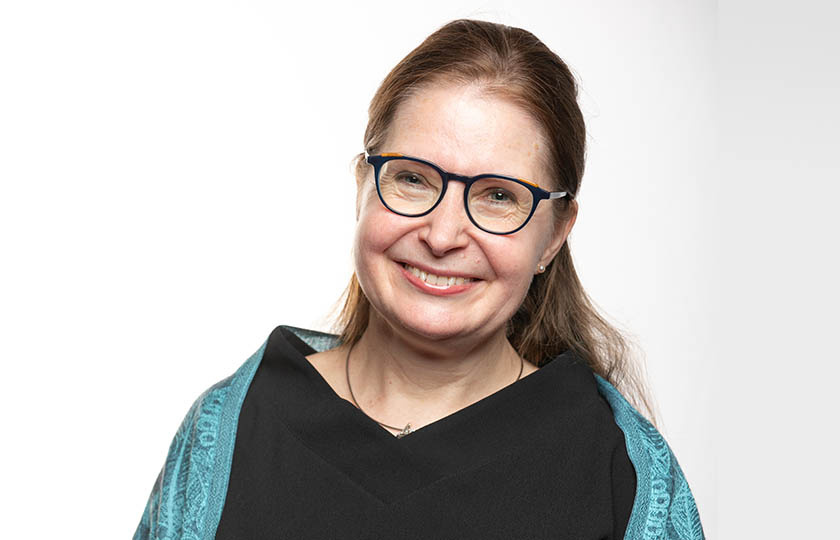
MIC’s Meet the Researcher series focuses on the breadth of research output from MIC academics and student researchers.
Visit MIC Insights- About
- Subject Overview
- Staff
- Useful Information
- Research
- Visit MIC Insights



